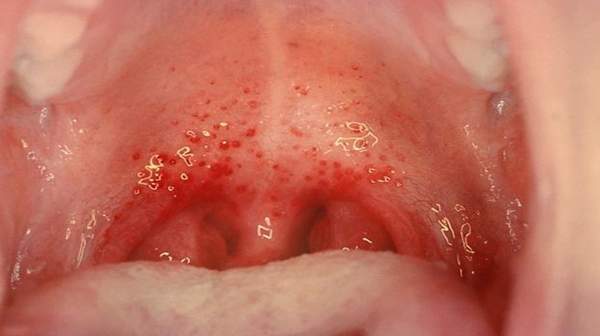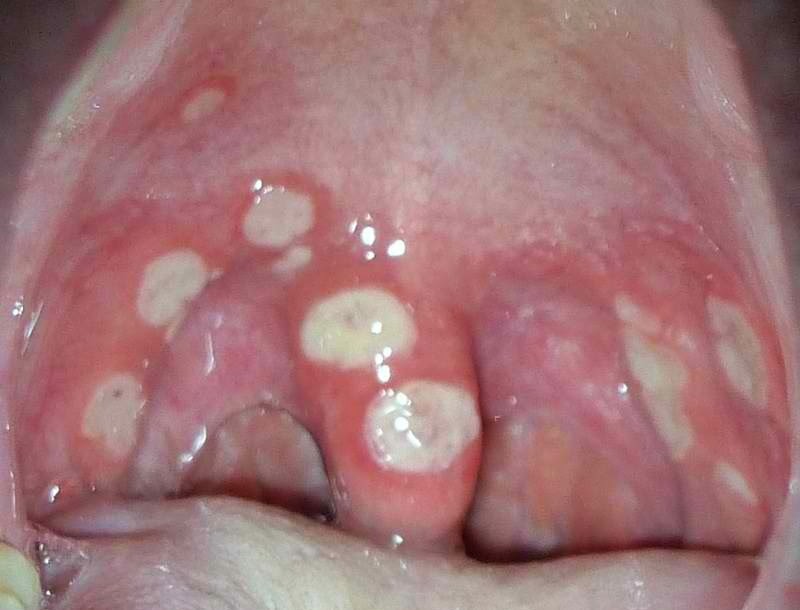What's in this article?
Viral pharyngitis can be caused by numerous viruses. Acute pharyngitis is an inflammatory syndrome of the pharynx and/or tonsils.
Viral pharyngitis is inflammation of the pharynx (the part of the throat between the tonsils and the larynx).
Symptoms of Viral pharyngitis
- Discomfort when swallowing
- Fever
- Joint pain or muscle aches
- Sore throat
- Tender, swollen lymph nodes in the neck
In addition to a sore, dry, or scratchy throat, a cold or flu may cause:
- sneezing
- runny nose
- headache
- cough
- fatigue
- body aches
- chills
- fever
In addition to a sore throat, symptoms of mononucleosis include:
- swollen lymph nodes
- fatigue
- fever
- muscles aches
- general malaise
- loss of appetite
- rash
In addition to a sore throat, strep throat can cause:
- trouble swallowing
- red throat with white patches
- swollen lymph nodes
- fever
- chills
- loss of appetite and nausea
- unusual taste in mouth
- general malaise
Causes of Pharyngitis
Viruses are the most common cause of sore throats, but some sore throats are caused by bacterial infections.
Individuals who are frequently exposed to colds and flus, such as healthcare workers or children in day care are the most likely to develop pharyngitis. Individuals who have allergies, experience frequent sinus infections, or who have been exposed to second-hand smoke are also more likely to develop pharyngitis.
Prevention of Pharyngitis
Most cases are not preventable, because the viruses and bacteria that cause sore throats are commonly found in the environment. However, always wash your hands after contact with a person who has a sore throat. Avoid kissing or sharing cups and eating utensils with sick individuals.
Home Care and Medication
If your pharyngitis is caused by a bacterial infection, your doctor will prescribe antibiotics. It is important that you take the entire course of antibiotics to prevent the infection from returning or worsening. If your pharyngitis is caused by a virus, home care can help relieve symptoms.
Home care includes:
- taking over-the-counter medication such as acetaminophen and ibuprofen to ease pain and reduce fever
- drinking plenty of fluids to prevent dehydration
- gargling with warm salt water
- using throat lozenges
- using a humidifier
- resting until you feel better








